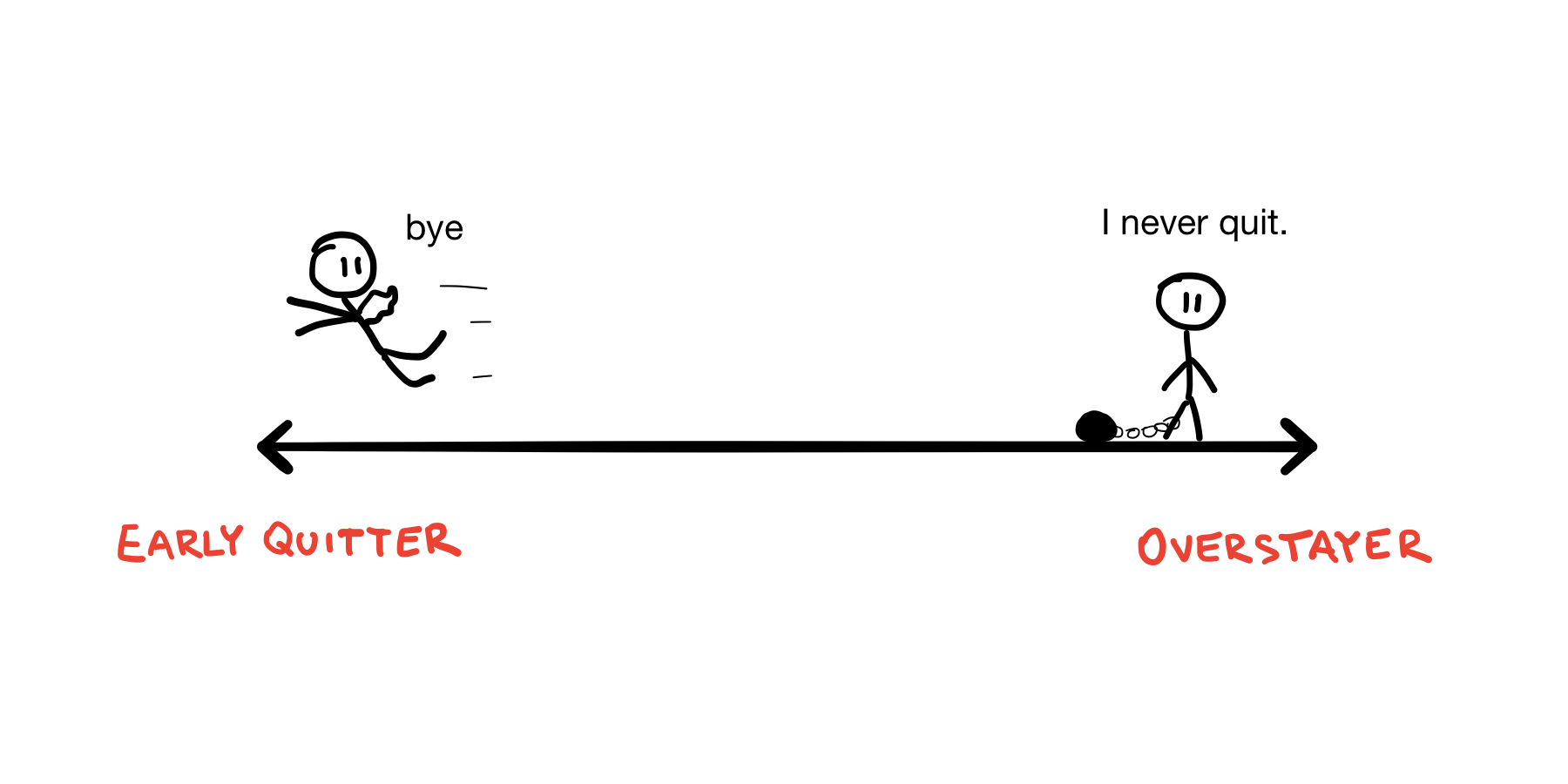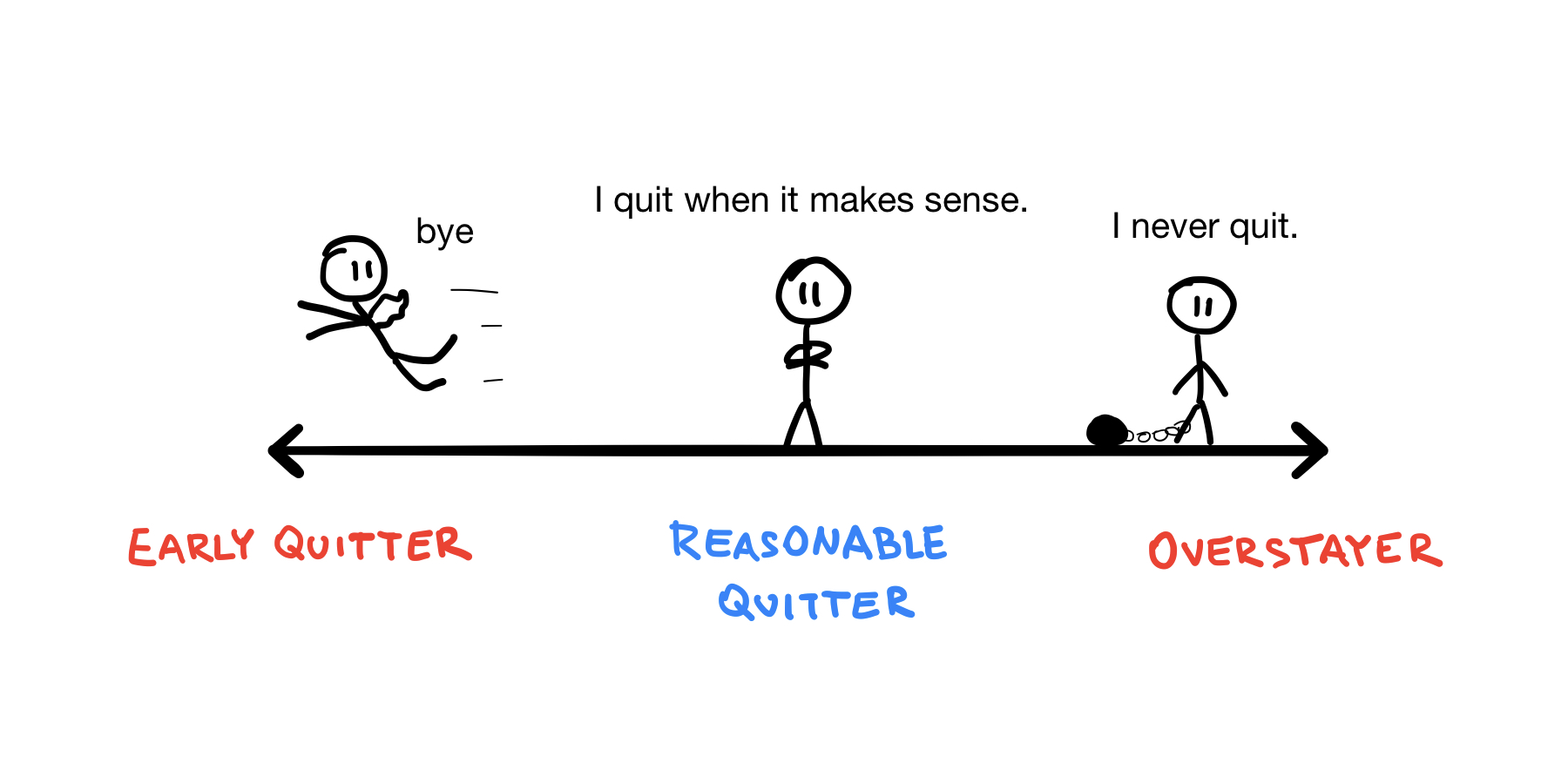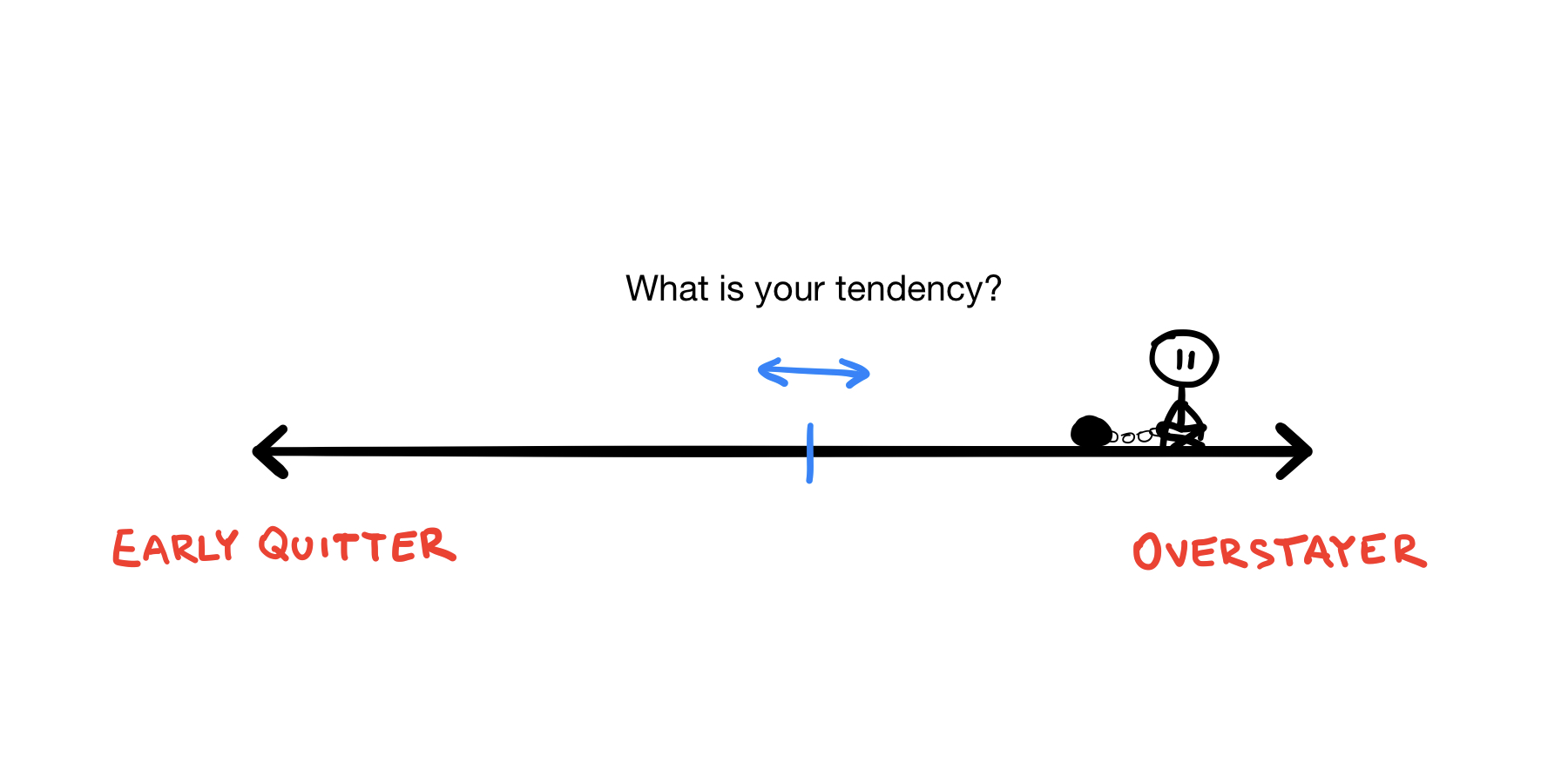Ondrej Markus
Entrepreneur in ed-tech, building the future of education as a founder and CEO at Playful.
I write about the future of education, designing learning games, and running a startup.
I'm a generalist, introvert, gamer, and optimizing to be useful.

How to find the right time to quit
Quitting on time will save your life. Or at least your sanity and friendships that would otherwise slowly decay into mutual bitterness as you hesitate to act.
It’s hard. The dilemma of whether you should quit your job or a relationship is a hefty one to carry around. Feelings are gonna get hurt. The fear of regret is tangible. We don’t want to leave too soon, or waste time in a dead-end.
Every situation is different, but aspects of your personality remain unchanged and repeat in your history. You can use that to calibrate your quit-o-meter by looking at your past, and improve your decision today.
Find your quitting tendency
Quitting tendency is a pattern in your behavior. You probably remember moments you rashed a decision to leave, or stayed in toxic circumstances for longer than you like to admit.
Learning from your past behavior is the best way to improve the timing of the next exit. Imagine quitting tendency on a spectrum.

Quitting Spectrum
On the left, there’s an early quitter who runs away on the first sight of trouble. He loves novelty but it harms his chances to finish long-term projects and form deeper relationships. He needs to commit himself more and endure the complicated realities of everyday problems. It’s tempting to replace one environment with another–so fresh, so uncomplicated, so peaceful. But what he doesn’t realize is that he’s taking his problems with him. He will be in the same position soon enough. He can’t outrun complexities of life.
On the opposite side is an overstayer who hates change. He’ll never leave even if the situation gradually degrades into murder. His inability to act causes everyone involved needless pain. He tends to push others to end it for him by passively-aggressively increasing his jerkiness. The situation is solved for him, when he gets fired or divorced. But the process leading to it is agony.
Those guys are nuts. Although, they could learn from each and combine into what we strive for–the unattainable ideal–a reasonable quitter.

Reasonable Quitter
The reasonable quitter understands her tendencies and compensates for them with experience. She accepts responsibility to end what doesn’t work, and acts quickly yet kindly once she knows it’s the right time to move on.
Calibrate feelings with experience
Acting on a shifting mood is usually a mistake. Feelings are invaluable information, but they only manifest as hazy hints of what we want.
Feelings are like a compass. They point in the desired direction but won’t tell you what is on the other end or how to get there. So making good quitting decisions requires both feeling and thinking.
To think, search for patterns in your behavior: When did I quit too soon/or too late and regretted it later?
Think about similar occasions to the one you struggle with now. Where does your previous behavior put you on the quitting spectrum?

Quitting tendency
Most of us are neither one of the extremes or the middle. Also, our goal isn’t to be 100% accurate when placing ourselves on the spectrum. It is to realize onto which side are we leaning towards and compensate for it when deciding whether to leave or stay.
Should I stay or should I go?
If you previously regretted leaving too early, wait a bit longer before you quit this time. Give it a fair chance and try your best. Don’t half-ass it, or you would be better off gone.
But if you tend to overstay in similar situations, you should probably quit now–the sooner the better. Those conversations won’t get any less unpleasant. Do the right thing, and get it done.